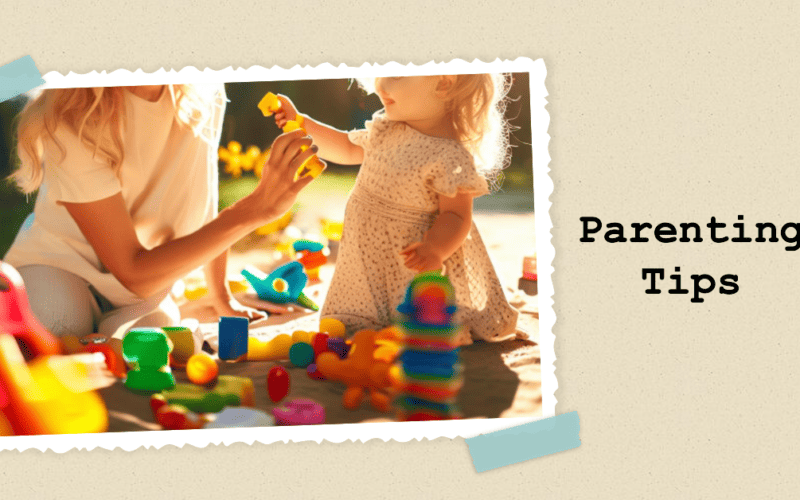Parenting Tips For Toddlers

Parenting a toddler can be both a challenging and rewarding experience.
It’s important to establish boundaries, create a routine, and engage in activities together as a family.
With the right approach, you can provide your child with love, understanding, and respect while also balancing discipline with nurture.
In this article, we’ll discuss some parenting tips for toddlers that will help you create a positive environment and ensure your child’s physical, social, and emotional well-being.
Learn how to be a good working parent →
Setting Boundaries
Struggling to set limits with your little one? Let’s work on creating boundaries! Establishing boundaries with toddlers can be difficult but it’s essential to their development.
Helping your toddler understand what’s expected of them and the consequences of not following the rules can assist in setting a routine and provide them with a sense of security.
When creating boundaries, ensure that they’re age-appropriate and achievable. Explain the boundaries to your toddler in simple terms and use visuals if they’re more receptive to them.
Remember to be consistent and don’t give in when your toddler protests, this could only lead to future behavior problems. Offer rewards for good behavior and encourage them to express their emotions and be understanding of their feelings.
With patience and understanding, you can help your toddler understand the boundaries and grow in their understanding of the world.
Learn more on how to set boundaries with kids →
Creating a Routine
Establishing a regular routine can help your little one feel secure and content. A consistent daily schedule can provide comfort and set expectations, allowing your toddler to know what to expect. Here are four tips to help you create a routine for your toddler:
- Start with the basics. Incorporate meals, naps, and bedtime into the routine.
- Create a visual schedule. Hang up a list of daily activities that your toddler can refer to.
- Get creative. Cut out pictures from magazines or draw simple pictures to represent different activities.
- Be flexible. Allow for changes and adjustments to the routine as your toddler grows and develops.
Engaging in Activities Together
Spending quality time with your little one can be an enjoyable experience, so why not make some memories together? Have fun, be silly, and don’t forget to throw in a few hugs and kisses along the way!
Engaging in activities together is a great way to connect and bond with your toddler. Try reading stories together, playing board games, or having a dance party. As your toddler grows, you can start to include them in more complex activities like baking or crafting. This can also be a great opportunity to teach your toddler about colors, shapes, and numbers.
Another way to engage in activities together is to go on outings. Take a trip to the local zoo or aquarium and explore the different animals and habitats. Head to the park and go on a nature walk together, or start a garden and encourage your toddler to help you tend to the plants.
Not only are these activities fun and educational, they also help to foster a strong connection between you and your toddler.
Managing Tantrums
Tantrums can be overwhelming and exhausting, but with some patience and understanding, you can help your little one manage their emotions. When a toddler is in the middle of a tantrum, it’s important to stay calm and avoid getting angry, which will only escalate the situation.
Instead, talk to your child in a soothing voice and explain what behavior isn’t acceptable. It may take some time for your toddler to understand why their behavior is wrong, so be patient.
Encouraging positive behavior in your toddler is the best way to prevent future tantrums. Praise your child when they do things correctly and give them attention when they’re behaving in a socially acceptable way. This will teach them what behavior is expected and help them develop self-control.
Additionally, it’s important to give them some independence and provide them with enough playtime to express their emotions in a healthy way.
Providing Love, Understanding, & Respect
Providing your toddler with love, understanding, and respect helps foster a secure and loving environment for them to grow and develop. This means taking the time to actively listen to your toddler when they speak, showing them that you care about what they have to say, and being patient when they don’t understand something.
It also means:
- Being consistent with your expectations and setting clear boundaries.
- Offering lots of praise and positive reinforcement when your toddler does something well.
- Taking time to play and engage in activities together.
Balancing Discipline & Nurture
| Disciplining and nurturing your toddler can be a delicate balancing act, but it’s an essential part of the parenting journey. It’s important to ensure your expectations are appropriate for their age, and that you provide them with a safe and caring environment. | You should also be consistent with how you discipline, and take time to explain to your toddler why certain behavior is unacceptable. |
|---|---|
| Creating a schedule and setting clear boundaries can help your toddler understand what’s expected of them. | It’s also important to make sure you give your toddler plenty of praise and positive reinforcement when they do something well. |
| In addition, make sure you take time to spend with your toddler, playing games, reading books, and engaging in activities that are fun and educational. | All of these things will help build trust and foster a bond of love and respect between you and your child. |
Frequently Asked Questions
How do I keep my toddler safe while allowing them to explore?
As a parent, it’s important to keep your toddler safe while allowing them to explore and learn.
The key is to create an environment where they can explore safely and with limits. Make sure your house is childproofed, and that any toys or games they use are age-appropriate.
When you go outside, stay close and watch them, and provide them with a safe space to explore in. Additionally, teach them the basics of safety, such as not running in the street and not talking to strangers.
By setting clear boundaries and teaching them safety rules, you can keep your toddler safe while allowing them to explore and discover.
What should I do if my toddler refuses to cooperate?
If you’re struggling to get your toddler to cooperate, you’re not alone— in fact, 93% of American parents have reported difficulty getting their children to cooperate with them.
It can be a difficult situation to navigate, but there are a few steps you can take to help encourage your toddler to cooperate and listen.
Start by setting clear expectations, and try to explain what you’d like them to do in a calm and patient voice. Treating your toddler with respect and understanding can go a long way in getting them to cooperate, as well as offering rewards for good behavior.
If all else fails, taking a break from the situation and coming back to it with a fresh perspective can help.
How can I ensure that my toddler is getting enough sleep?
Making sure your toddler gets enough sleep is key to their overall health and well-being.
Establishing a consistent bedtime routine can help your child transition from being awake to being asleep. This means setting a designated bedtime, turning off screens and electronics an hour before bedtime, and having a calming activity such as reading or listening to soothing music.
It’s also important to limit naps during the day, as too much sleep can make it harder for them to fall asleep at night.
Taking these steps can help ensure your toddler is getting enough restorative sleep.
What strategies can I use to encourage my toddler to develop positive habits?
As a parent, it’s important to help your toddler develop positive habits. Establishing good habits early on can have a lasting impact on your child’s future.
Some strategies you can use to encourage your toddler to develop positive habits include setting clear expectations, modeling positive behavior, providing positive reinforcement, and using meaningful rewards.
Make sure to explain to your toddler why certain behaviors are important and why it’s beneficial to them. Be consistent and patient in your approach, and your toddler will soon develop healthy habits that will follow them through their life.
How can I best explain to my toddler why certain behaviors are unacceptable?
Talking to your toddler about why certain behaviors are unacceptable can be tricky. To make it easier, try using allegories to explain why their behavior is wrong.
For example, you can explain that it’s wrong to hit others like it’s wrong to hit a wall; it’ll hurt and cause damage. You can also explain that it’s wrong to take things that don’t belong to you, like it’s wrong to take food from someone else’s plate.
By using allegories when speaking to your toddler, you can help them better understand why certain behaviors are unacceptable.
Conclusion
You’ve done great work so far, and you’re well on your way to becoming an amazing parent for your toddler.
Parenting is a challenging yet rewarding journey, and with the right tools, you’re sure to get the most out of it.
Remember: parenting is like walking a tightrope. You must find balance in setting boundaries, providing love and respect, and managing tantrums.
Put in the effort to be consistent, create routines, and engage in activities together. It’s a balancing act, but it’s worth it when you see the light of love in your little one’s eyes.











